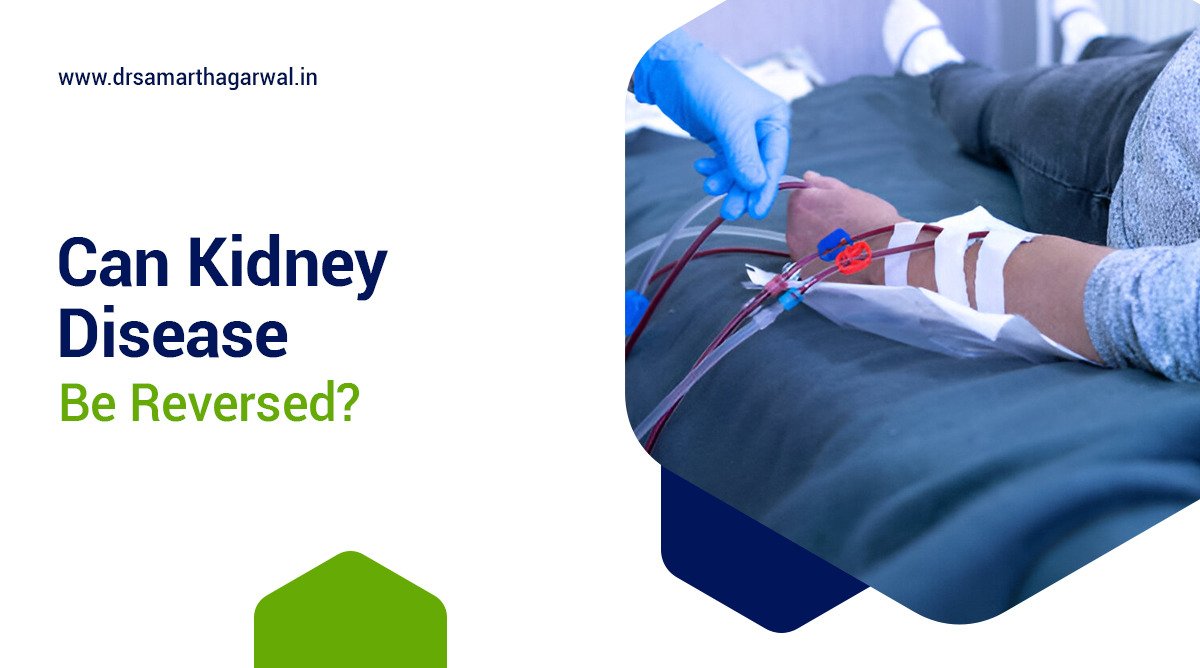Kidney disease is an escalating health concern that affects millions of people worldwide, often remaining undetected until significant damage has occurred. It is essential to understand the various causes and types of kidney disease to facilitate early detection and effective management. This overview will guide you through the symptoms to watch for, explore treatment options including medications and therapies, and discuss the possibility of reversing kidney damage. Additionally, we will highlight preventive measures and lifestyle changes that can promote kidney health. Whether you are seeking to understand your own condition or looking to support a loved one, this information will equip you with the knowledge needed to navigate kidney health effectively.
According to Singh, A.K.’s 2013 study, ‘Epidemiology and risk factors of chronic kidney disease in India – results from the SEEK (Screening and Early Evaluation of Kidney Disease) study’, chronic kidney disease (CKD) affects 17.2% of the studied Indian population, with stage-wise prevalence of 7% in Stage 1, 4.3% each in Stages 2 and 3, and 0.8% each in Stages 4 and 5. The study, which included participants with a mean age of 45.22 years (55.1% males, 44.9% females), identified hypertension (43.1%) and diabetes (18.8%) as major risk factors, with 79.5% of CKD patients showing proteinuria. Alarmingly, only 7.9% of CKD patients were aware of their condition. The study also revealed that India has an estimated 229 per million population age-adjusted incidence rate of ESRD, with over 100,000 new patients annually requiring renal replacement programs, though only 10% receive such therapy due to limited resources.
Causes and Types of Kidney Disease
Kidney disease is a progressive condition with multiple causes and types, leading to a gradual loss of kidney function.
Causes of Kidney Disease
- Diabetes: Damages blood vessels in the kidneys, accelerating disease progression.
- Hypertension: Causes damage to kidney blood vessels, contributing to disease progression.
- Glomerulonephritis: Inflammation of the kidney’s filtering units, potentially contributing to CKD progression.
Types of Kidney Disease
- Chronic Kidney Disease (CKD): A progressive disease categorized into five stages, indicating gradual loss of kidney function.
- Kidney Failure: A serious health consequence of untreated or advanced kidney disease.
Symptoms of Kidney Disease
Recognizing the symptoms of kidney disease is crucial for early diagnosis and treatment, particularly in cases of chronic kidney disease (CKD), where symptoms often do not manifest until the later stages of the disease.
Common symptoms of kidney disease include:
- Fatigue
- Swelling in the legs
- Changes in urination patterns
- Persistent high blood pressure
Additionally, individuals with kidney disease may experience elevated cholesterol levels and other complications resulting from impaired kidney function. Early identification and evaluation of these symptoms can facilitate timely and effective interventions.
Recognizing the Signs
Recognizing the signs of kidney disease is crucial for patients to seek medical intervention early, as symptoms are often mild and easily overlooked, particularly in cases of chronic kidney disease (CKD).
Individuals should pay attention to any changes in their urination patterns, including frequency and the color of their urine, which may appear darker or foamy.
Persistent swelling in the legs, ankles, or around the eyes could indicate that the kidneys are not functioning properly and that the body is retaining excess fluid.
Additionally, fatigue that does not improve with rest may be a significant symptom, as it could suggest that the kidneys are not effectively filtering waste.
Being aware of these signs allows individuals to monitor their health more closely and may lead to essential diagnostic testing, resulting in an early diagnosis of CKD.
Treatment Options for Kidney Disease
Treatment options for kidney disease vary based on the underlying cause and the stage of the disease. Chronic kidney disease (CKD), in particular, requires a comprehensive approach that may include medications, dialysis, or even a kidney transplant in more advanced stages.
The management of CKD often focuses on supportive treatments aimed at alleviating symptoms and slowing disease progression, both of which can lead to an improved quality of life for patients.
One class of medications that healthcare professionals may prescribe for CKD is SGLT2 inhibitors, as they have been shown to provide renal protection while also helping to control blood pressure.
Medications and Therapies
Medications and therapies play a crucial role in the management of kidney disease, particularly chronic kidney disease (CKD). Administering appropriate pharmacological treatments can slow the progression of CKD and minimize its complications.
One class of medications gaining attention is SGLT2 inhibitors, which promote glucose excretion and lower blood pressure—both of which are beneficial for preserving renal function. These inhibitors work by blocking the sodium-glucose co-transporter-2, leading to decreased glucose reabsorption in the kidneys and reducing hyperglycemia-related damage.
Another significant class of medications is ACE inhibitors, which help lower levels of angiotensin II, a hormone that causes blood vessel constriction. By promoting vasodilation, ACE inhibitors alleviate stress on the kidneys and reduce proteinuria, a common symptom of CKD.
By addressing these underlying issues, these medications enhance overall kidney health, assist in symptom management, and enable patients to maintain a higher quality of life.
Can Kidney Disease be Reversed?
Determining whether kidney disease can be reversed is a complex question that depends on several factors, including the stage of chronic kidney disease (CKD) and the degree of lifestyle changes and supportive treatment implemented.
While advanced stages of CKD, particularly stage 5, often result in irreversible damage, early intervention can significantly slow the disease’s progression and, in some instances, even improve kidney function through lifestyle modifications and timely medical treatment.
Understanding the potential for reversibility in kidney disease is crucial for both patients and healthcare providers.
Factors Affecting Reversibility
The reversibility of kidney disease is influenced by its underlying cause, the stage of chronic kidney disease (CKD), and the implementation of kidney health-promoting lifestyle changes.
Significant lifestyle modifications that contribute to better overall health include:
- Regular exercise
- Quitting smoking
- Effectively managing stress
Maintaining controlled blood pressure is crucial, as high blood pressure can further damage the kidneys; therefore, it is essential to manage it through both medications and lifestyle adjustments.
Additionally, dietary changes, such as reducing salt and protein intake, can help alleviate stress on the kidneys.
Symptoms of chronic kidney disease often remain absent until the later stages, making early diagnosis and treatment critical for improving outcomes and the potential for reversibility.
Preventing Kidney Disease
Preventing kidney disease is crucial for overall health, particularly among high-risk populations.
Lifestyle modifications and a healthy diet can significantly reduce the likelihood of developing chronic kidney disease (CKD). Effective strategies for kidney disease prevention include:
- Controlling hypertension
- Maintaining a healthy weight to prevent obesity
- Adhering to dietary practices that support kidney health
Healthy Habits for Kidney Health
Maintaining healthy habits is essential for promoting kidney health and preventing kidney disease. Key healthy habits include following a balanced diet, engaging in regular exercise, and attending routine health check-ups.
A balanced diet that is rich in a variety of fruits and vegetables helps control blood pressure levels, thereby reducing the risk of strain on the kidneys. Staying adequately hydrated is also important, as it enables the kidneys to effectively filter out toxins from the body.
Additionally, sodium intake should be limited, as excessive salt can lead to high blood pressure, which may result in kidney damage. Regular exercises, such as brisk walking, swimming, and cycling, promote cardiovascular health, which is closely linked to kidney health.
Furthermore, routine check-ups and screenings facilitate the early detection of potential issues, allowing for timely intervention. These simple yet impactful lifestyle changes are vital for maintaining optimal kidney function.
Lifestyle Changes for Managing Kidney Disease
Lifestyle modifications play a crucial role in managing kidney disease, especially chronic kidney disease (CKD), as changes in diet and regular exercise can lead to improved health outcomes.
Diet and Exercise Recommendations
Diet and exercise recommendations are crucial for managing kidney disease, as a well-balanced diet and regular physical activity can significantly improve health and slow the progression of chronic kidney disease (CKD). These recommendations should be tailored to meet the specific needs of each individual.
For those with kidney impairment, a diet low in sodium, phosphorus, and potassium can help maintain optimal kidney function while still ensuring adequate protein intake from high-quality sources. Proper hydration is also essential, as it aids in flushing out toxins and supports overall organ performance.
Engaging in low-impact physical activities such as walking, swimming, or yoga not only enhances cardiovascular health but also improves mood and energy levels. By prioritizing these factors, individuals with kidney disease can develop a sustainable lifestyle that promotes their overall well-being.

Contact Dr. Samarth Agarwal if you have any questions or concerns about kidney diseases!




